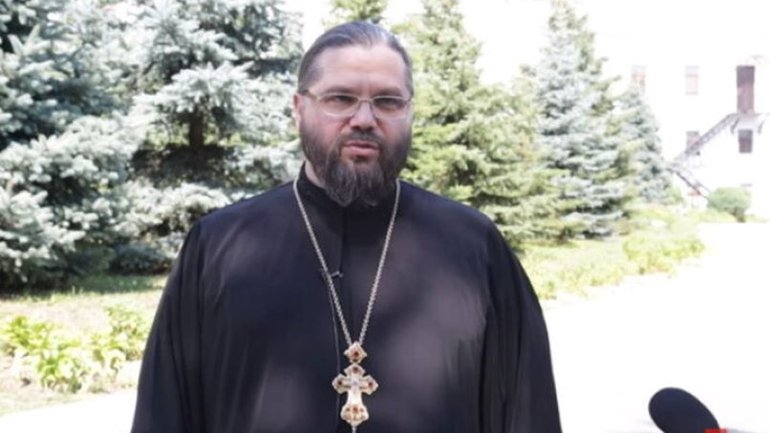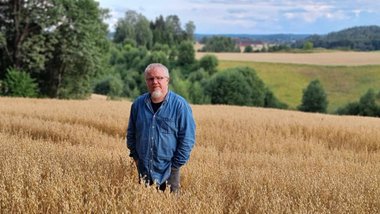UOC-MP expressed their readiness to fight for a possibility to serve as chaplains in the Armed Forces of Ukraine

In particular, Archimandrite Luka (Vinarchuk) of the UOC-MP, who is the deputy chairman of the UOC-MP for Interaction with the Armed Forces and Other Military Formations of Ukraine, stated that the Moscow Patriarchate will still need to "fight" to join the Ukrainian army.
"We will have a lot of work to do to restore fair treatment of military personnel who are members of our Church," Luka said.
He thanked several deputies without specifying their names, who lobbied for the interests of the UOC MP, and he added that"it's definitely too early to be happy and have fun."
"There is a big difference when we are called the Muscovite Church and when they do not want to hear about the rights of believers guaranteed by the Constitution. We understand that there will still be many difficulties," he stressed.
This is not the first time such statements have been made by the UOC-MP. One of them was made almost on the same day after the following message on the official website of the Deanery of Sevastopol of the UOC MP:
"On March 19, Russia celebrates the day of the Submariner. This year marks the 115th anniversary of the Russian submarine fleet. In honor of this event, a solemn rally was held in Sevastopol, near the monument to the Black Sea submariners, which was attended by Archpriest Vasyl Humarov, assistant dean of the Sevastopol district for work with religious servicemen."
The priest, on behalf of Metropolitan Lazar (Shvets) of the UOC-MP and on behalf of the clergy of the Sevastopol deanery, "congratulated the submariners on this memorable date."
After the occupation of the Crimean Peninsula by the Russian armed forces, the servants of the UOC-MP serve as "spiritual guides" to Russian sailors for combat missions.
As reported, on November 30, the Verkhovna Rada adopted the law “On Chaplaincy”. OCU representative Archbishop Yevstratiy (Zoria) noted that priests of the UOC-MP cannot be chaplains in the Armed Forces of Ukraine, because this is prohibited by law.
The spokesman of the OCU, Archbishop Yevstratiy Zoria, in discussing the topic of banning service in the army to chaplains of the UOC-MP, repeatedly claimed that the Moscow Patriarchate has shown that its chaplains, in the event of open Russian war, are very likely not to support the Ukrainian military in the fight against the aggressor and are very likely to contribute to the aggressor.
“I have a simple example for this topic. How many chaplains of the Moscow Patriarchate in Crimea opposed the Russian occupation and spiritually supported Ukrainian units during the Russian invasion? I don't know about any of them. How many of the same chaplains supported Russian aggression? There are numerous cases, with awarding them later “For Assistance” medals and diplomas. So – the Moscow Patriarchate in Ukraine has shown by a living example that its chaplains, in the event of open Russian war, are very likely not to support the Ukrainian military in the fight against the aggressor and are very likely to contribute to it," His Eminence stressed.
In addition, according to the law, before being hired, chaplains must pass coordination with the SBU bodies (“the Central Administration or regional bodies of the SBU, military counterintelligence bodies”). While UOC MP was unwilling to coordinate with the SBU the candidacies of military chaplains. Official representatives of the UOC-MP do not comment on the full support that the dioceses of the UOC-MP provide to the Russian occupation forces in Crimea, consecrating military equipment and working out the optimal scheme for serving priests in Russian combat positions.
In 2018, the Judicial Reporter told how the GRU of the Russian Federation recruits Ukrainians and works with them with the help of "a prayer book with canons for every day of the week and any prayer of the soul."
Crimean clergy of the UOC-MP also blessed the forum of separatists of Donbas, Ossetia, and Transdniestria.
According to the results of the survey, in the Armed Forces of Ukraine, 70% of the military identified themselves as believers of the Orthodox Church of Ukraine, 10% indicated belonging to the Ukrainian Orthodox Church of the Moscow Patriarchate, 7% - to the Ukrainian Greek Catholic Church, 4%-to the Roman Catholic Church in Ukraine, 2% profess Islam, 2% identify themselves as Protestants, 5% belong to other religions.









